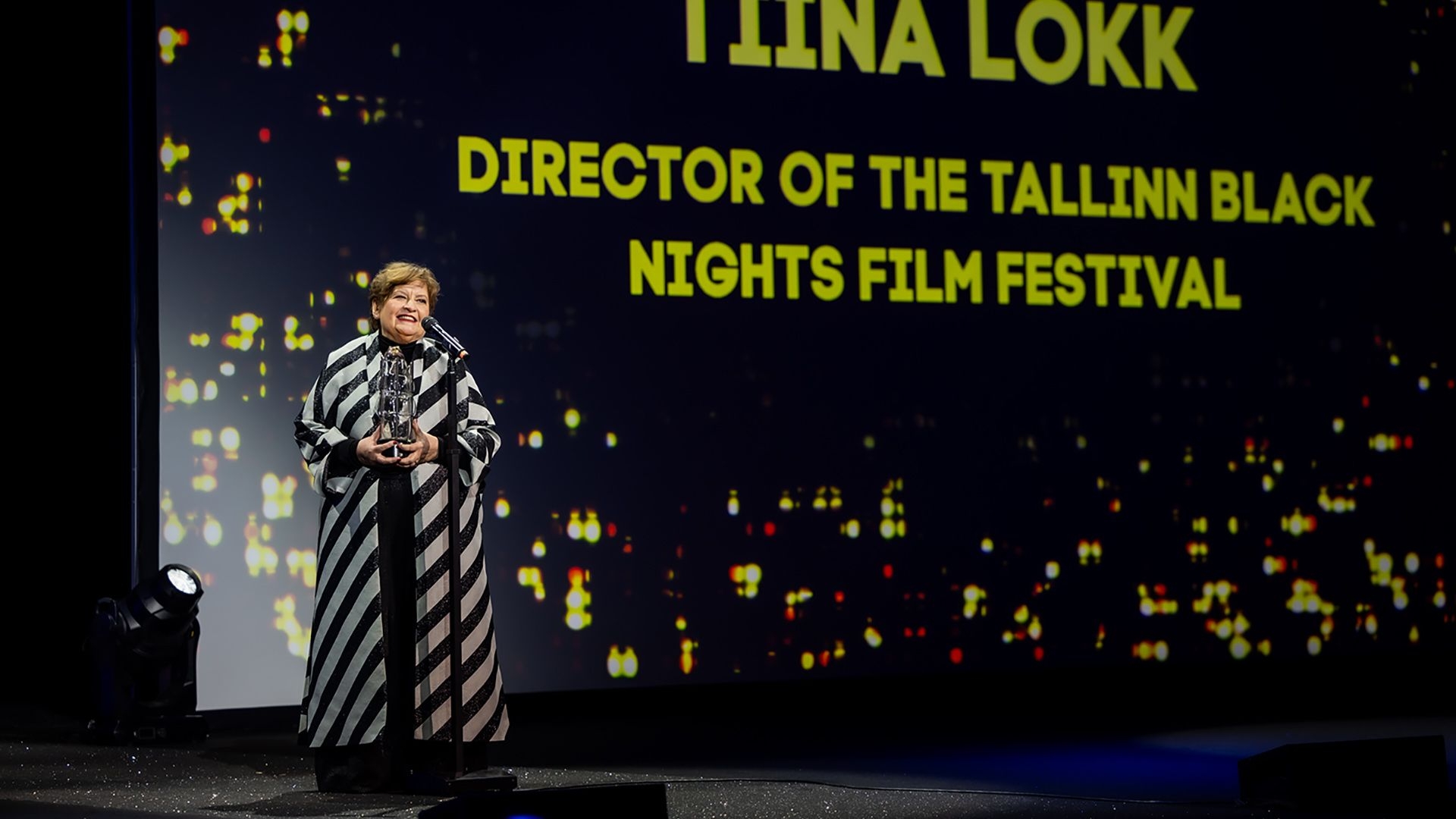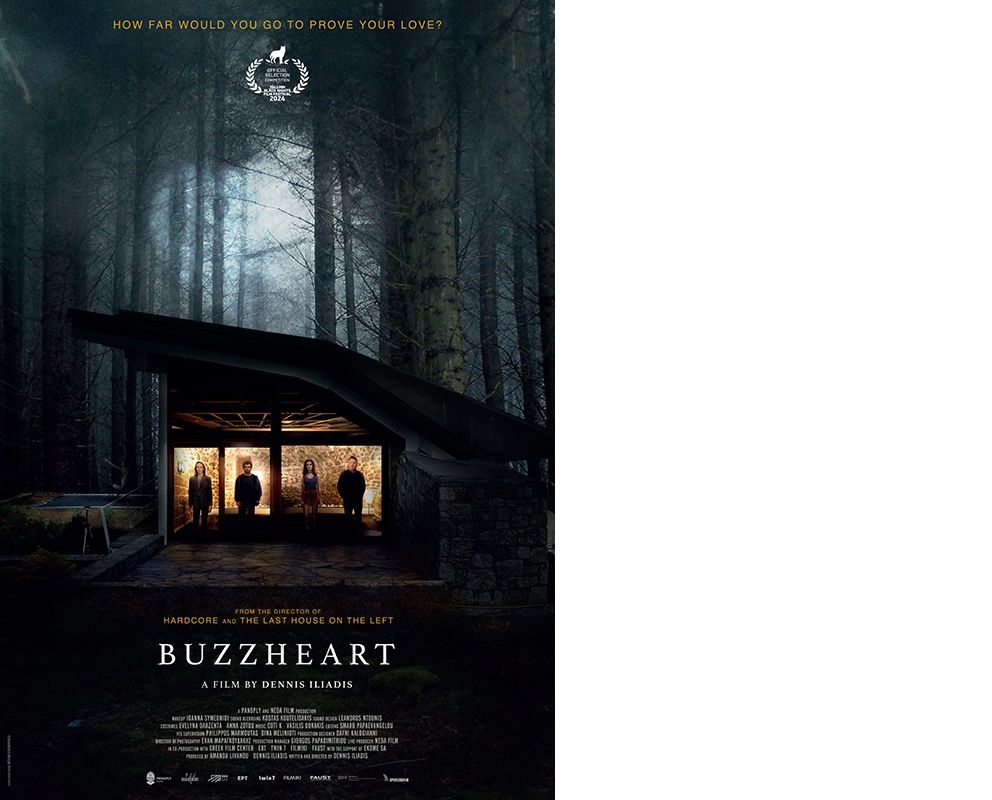
Interview with the curator of the Official Selection Competition and festival director.

What are the main themes in PÖFF’s Official Selection Competition programme this year? What genres and viewpoints are dominant?
The diverse selection of films sent to us is what determines the directions. As always, there are many genres in our competition programme and the same goes for other programmes. At the same time we never accept a film based only on the genre – for us the genre is one way to express the message. The competition programme has everything from a psychological thriller bordering on horror to psychological family drama and science fiction. The selection is broad also when it comes to different countries. We are not concentrating on one major theme or highlighting specific regions, we are free in our choices. Talking about tendencies, this year the recurring themes are ageing, the end of life and euthanasia – could be that these were influenced by COVID-19. Bullying at school, children’s issues and rights are also some more prominent themes. These films belong mainly in the Just Film programme, but the Official Selection Competition programme has films on these themes for adults. Last year there were many intense political films, but this year world politics is not in focus like that. Then again war is a theme that comes up, but not in a traditional way. The Official Selection Competition programme has two unconventional and psychologically interesting war films. There are also films about domestic violence.
Will the Official Selection Competition programme offer more audience-friendly films that have a potential of being easily distributed or is the focus more on elitist film d’auteur?
Like I’ve always said, we are focused on authors. We have films by authors who all use very different cinematic language. We also have films that use forms of expression and structure that far exceeds the psychological storytelling style that the audience has become used to. These are aesthetically more interesting, but also harder to grasp. So we have both. I’d say the Official Selection Competition programme is the crossroad where the author and the audience should meet.
For freaks and film buffs we have other programmes like Rebels With A Cause and Critic’s Picks. The Official Selection Competition programme and the First Feature Competition programme have a wide frame and are meant for a wider audience.
As someone who has a degree in film theory and is from the generation that had great film directors with an audiovisual way of thinking, I am always happy when we are sent the kind of films where the story is developing through shapes and symbols, not only through a causal narrative. These films need a certain level of expertise. At the same time there are dramas that use linear storytelling and are psychologically multifaceted, while being cinematically literary. I find both enjoyable and the Official Selection Competition programme offers both.
What were the principles of putting together the programme?
Time brings up one theme or another and we try to select films that are fresh and original both when it comes to the theme and the forms of expression. The films for our programme are chosen by an international team that has quite many members, because there are a lot of films. Even though other festivals have also big teams, we do things more democratically – we don’t label our contributors as selectors and film scouts, for most of them are doing both. The fact that our team is international, is determined by the location. The programme team needs to consist of people, who go from festival to festival and literally breathe in the atmosphere of the film world. It is much easier to go to festivals from somewhere in the middle of Europe than it is to buy plane tickets from Estonia. The other reason is that Estonian film critics don’t have enough publications to publish their writings and so they rarely go to festivals. An A-list film festival needs to have an international programme, because otherwise it could become provincialized. Most of our international team members are film critics. They know the films, the tendencies and filmmakers of their own region and this ensures us with a good and smooth flow of films. Our film scouts are the first filter for many films during the selection process. PÖFF’s programme team is divided in two: one group watches the films of the Official Selection Competition programme and the other watches the films of the First Feature Competition programme. Both groups suggest films for the Critic’s Pick, Rebels With A Cause and Baltic Film Competition programmes. And all our teams suggest films for programmes that are not part of the competition. This year for the first time we have a documentary film competition programme as well as a selection of the best documentary films. This was the last missing link in the programmes until now, but it is mandatory for an A-list festival.
Our Official Selection Competition programme, the First Feature Competition programme, Critic’s Pick and Rebels With A Cause are compelled by FIAPF regulations to offer only world and international premieres. We are the last milestone of the year, considering the fact that films need to go on a journey and the year a film came out plays an important role here. The films that have their premiere at our festival, will start their festival journey and will be screened at the cinemas next year. We thought it might disrupt the circulation of our films, but fortunately it hasn’t happened. The films that have premiered at our festival are circulating at many festivals and this is something we can be proud of. In a way it is also a control mechanism for us, because if other festivals will not accept our films, there’s been a mistake somewhere. But fortunately this is not the case. For instance the film that won our Official Selection Competition programme’s Grand Prix last year is in selection for the European Film Award. This shows that we can put together great competition programmes. The good thing about our festival is the strong industry side. If the industry is strong, then the festival is strong and also the other way around – if the competition programmes consist of strong films, the industry is also strong. They are completing one another. We can get new films for our side programmes because of our A-list status, strong competition programme and strong industry. And if anyone asked, why do we have so many films, we could answer that there wouldn’t be so many if we didn’t have the audience. We try to reach many different target groups with our wide selection of films. And if we didn’t have the audience, we would not select all these films to show. The number of films and the proceeds are connected.

What is new, special and different about this year’s Tallinn Black Nights Film Festival as a whole?
By now our A-list format is in place, all the sections are there, Old Gold among others. We created that programme this year and its main mission is to show the Estonian and the other Baltic countries’ restored film history. This exclusive programme has also interesting archived films from other countries. The aforementioned documentary film programme is also new. The third thing we are working on is TV Beats – TV films with a panel discussion for professionals. We have met most of the requirements for an A-list festival, mainly by bringing out the new directions of Northern Europe and the Baltics. All the sections could have been even more interesting, if we hadn’t lost the funding by the Cultural Endowment of Estonia.
Which PÖFF’s programme are you looking forward to the most?
I have watched almost all the feature films, just a few are yet to be seen, but I would love to see the documentary film programme that our new team has put together. This is what I will do at some point. I read the synopses of the documentaries and they seemed interesting, so this is a programme I am really looking forward to. I would also watch the Old Gold, although I have seen all of these films before.
Over the years the 28-year-old PÖFF has had its share of difficulties that have called for great courage, resourcefulness and tenaciousness from the team to overcome them. What has been the biggest challenge and risk in organising this year’s PÖFF?
This year has been quite calm compared to last year. Last year the themes in focus were very charged, because the world was in a political turmoil. This year our programme doesn’t include the kind of films that would evoke a spat between diplomats or make them argue with me. The programme is calmer, although I wouldn’t say the same about the films. The main challenges we are facing are the money problems and bringing the guests here. The last one isn’t even so much about the lack of money, but about planning the flights. The problem arises when a guest has to change the airline company for a connecting flight here – that makes the ticket pricier – or when the guest needs to spend some extra time in the hotel to get a normal flight back – that is also expensive. Every world premiere usually brings here 8-25 star guests.
PÖFF was created in the year 1997 out of a protest against the sad state that the Estonian film had found itself in. Do you still feel like a rebel, now that you have built up this huge film festival? Is the revolution still ongoing?
In a way the revolution is still in process, because we still need to prove that we are necessary. We need to constantly show the numbers to prove the we are economically effective, while at the same we would like to talk about the image that PÖFF is creating of Estonia, about the international reputation the festival brings, about the cultural values of the festival, how it broadens the horizons and makes Estonians more tolerant, takes care of your mental health during tumultuous times – these are things not talked about enough. Also the fight has moved elsewhere from where it started. Our team has decided not to obey the topical politics. The films that we select need to be good and interesting. I don’t even know how many female or male directors we have at our festival. I’m sure I will find it out one day, but this is not the basis for the selection. The same goes for other quotas. The most important question that the festivals face right now is how to remain independent and free, free to make choices. Festival should be the platform where films can have a dialogue and where the filmmakers can have a dialogue. We also have a programme named Flowers Are Not Silent where this year we have gathered the films of Belarusian filmmakers and Georgian independent filmmakers. There are many cases where the filmmakers are in opposition with their home country’s official ideology. If I choose a film for the programme by filmmakers who are in that situation, I need to have immense faith in them, because together we are building a platform, so that the filmmaker doesn’t come under fire alone. This is why we have to be very mindful and sure about the background while selecting the films. Cultural diplomacy needs to be exceptionally competent now more than ever. As the festival director, I wish that the society would think along with the filmmakers.